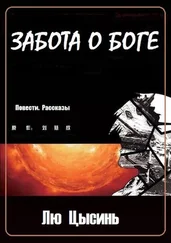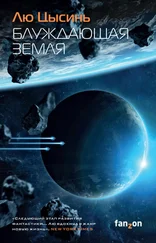At last a sound broke the stillness: a faint snap from a computer on the desk, and then from everyone’s mobile phone. The sound of electronic chips frying. At the same time, a multitude of small objects passed through the unharmed outer case of the computer and radiated outward—objects that, on closer inspection, turned out to be complete CPUs, memory sticks, and other chips, each in a quantum superposition, existing simultaneously in an unknown number of positions. The flying chips were so numerous that the office building was momentarily choked in a thick chip probability cloud. Then, like an invisible broom, observation returned these chips to a destroyed state and they vanished, dragging tails behind them, collapsing to ash inside the computer case. Soon the air was empty again.
There was a louder noise, a thunder that carried through the air. It was the incoming missile, chips fried, spiraling downward in a huge fireball.
Peace was restored. The blue sun shrank rapidly down to a single point near the ground, then disappeared into the spot where, just one minute before, two macro-nuclei had collided off their bridges at five hundred meters per second and two strings of singularities twisted together in the blink of an eye. Now, in the unimaginable macro-universe, two atoms were gone, but a new one had been born, an incident unnoticed by any observer in that world. As in our world, only when billions and billions of nuclei were tangled together would they produce an effect that could be called an incident.
The setting sun quietly shone its light on the Gobi Desert and the base. A few birdcalls sounded from the tamarisks, as if nothing at all had happened.
Base personnel gathered at the fusion point, where the tent and everything within it had vanished without a trace. Before them was a smooth mirror roughly two hundred meters in radius lying flat on the sands, formed when the silicon of the ground instantly liquefied and then solidified. Like other objects melted by ball lightning, the ground had not emitted an appreciable amount of heat when it melted, but had been transformed while in a wave state in some other space. It was now cool to the touch. Its surface was astonishingly smooth, and reflected their faces with great clarity. Try as he might, Ding Yi found nothing to indicate how the ground had solidified, or by what mechanism this part of the Gobi had been made so flat and smooth after melting. The people stood around the huge mirror in silence, looking at the beautiful reflection of the sunset in the western sky, then the stars that came out one by one in the reflection of the heavens.
Meanwhile, the macro-fusion wave of energy was propagating outward. It passed all three target circles, turning all eighty thousand tons of chips in the hundred-kilometer radius to ash, then kept going. It expanded to more than a thousand kilometers before the volume of chips it passed along the way was enough to weaken it, thereby dragging one-third of the country back to an agricultural age.
The rain had stopped at some point, and outside the window, the first light of dawn was coming.
As on that birthday night in my youth, I was no longer the person I was the day before. I had lost too much—although, for the moment, I wasn’t sure of what I had lost, only that I had been reduced to a weak, hollow shell.
“Do you want to keep listening?” Ding Yi, his eyes bloodshot, said drunkenly.
“Hmm? No, I don’t want to listen anymore.”
“It’s about Lin Yun.”
“Lin Yun? What more is there to say about her? Go on.”
* * *
On the third day after macro-fusion, Lin Yun’s father arrived at the fusion point.
By this point, most of the more than three hundred captured macro-nuclei had been released into the air. When the electromagnets that attracted them cut out, the strings danced away fairly quickly, and soon disappeared without a trace. The thirty-odd strings kept for research use were transferred to a safer storage point. Base personnel had mostly dispersed, and stillness returned to this part of the Gobi Desert that had witnessed two massive energy discharges in two separate centuries.
Only Colonel Xu and Ding Yi accompanied General Lin to the fusion point. The general looked more haggard and far older than he had at the meeting in Beijing not long before, but he maintained an indomitable spirit that made him appear unbroken.
They reached the edge of the huge mirror created by macro-fusion. The mirror’s surface was covered in a thin layer of sand, but it was still smooth and bright and reflected the clouds that swirled overhead, like a patch of sky fallen into the Gobi, or a window into another world. As General Lin and the other two stood there in silence, time in their world seemed to have stopped. In the world of the mirror, it raced breakneck forward.
“This is a unique monument,” Ding Yi said.
“Let the sand slowly bury it,” General Lin said. A few wisps of white hair that had appeared on his head wafted in the wind.
And then Lin Yun appeared.
The clunk of a security officer pulling back a rifle bolt alerted them. When they looked up, they saw Lin Yun standing on the other side of the mirror—four hundred meters away, but even at that distance, they all recognized her. She strode across the mirror toward them. General Lin and the others quickly realized it was the real Lin Yun, not an illusion, since they could hear the light crunch of her feet on the surface like the tick of a second hand, and they could see the footprints she left in the thin layer of sand. The clouds continued their tumble across the mirror as she walked atop them, at times raising a hand to brush away her short hair where the Gobi wind had blown it onto her forehead. When she had nearly reached them, they could see her uniform was trim, like new, and although her face was a little pale, her expression was clear and calm. Finally, she stood in front of her father.
“Dad,” she said softly.
“Xiao Yun, what have you done?” General Lin said. His voice wasn’t loud, and it was tinged with a deep sorrow and despair.
“Dad, you look tired. Why don’t you sit down.”
A security officer carried over a wooden crate that had once held experimental equipment, and General Lin sat down on it slowly. He did seem exhausted. Perhaps for the first time in his long military career, he let his exhaustion show.
Lin Yun nodded at Colonel Xu and Ding Yi in greeting, and gave a familiar smile. Then she said to the guard, “I’m unarmed.”
General Lin waved at the guard, who lowered the assault rifle, but kept a finger next to the trigger.
“I really didn’t imagine that macro-fusion would have so much force, Dad,” Lin Yun said.
“You’ve rendered a third of the country defenseless.”
“Yes, Dad,” she said, lowering her head.
“Xiao Yun, I don’t want to criticize you. It’s too late for that. This is the end of everything. The only thought in my mind the past two days has been: Why did you take this step?”
Lin Yun looked at her father, and said, “Dad, we came here together.”
General Lin nodded heavily. “Yes, child. We came here together, and what a long road it’s been. Perhaps it began with your mother’s sacrifice.” The general squinted at the blue sky and clouds in the mirror, as if staring at past time.
“Yes, I remember that night. It was the Mid-Autumn Festival. A Saturday. I was the only one left behind out of all the kids in the military kindergarten. I sat on a stool in the compound, clutching a mooncake an auntie had given me, but instead of looking up at the moon, I was staring at the gate. She said, ‘Poor Yunyun, your dad’s with the troops and can’t come back to pick you up. You’ll sleep at the kindergarten tonight.’ I said, ‘My dad never comes to pick me up. My mom does.’ She said, ‘Your mom’s not here. She gave her life in the south. She won’t be coming to pick you up anymore, Yunyun.’ I knew that already, but now the dream I had tended for a month was completely dead. The big kindergarten gate often appeared before me in my waking hours and my dreams. The difference was that, in my dreams, Mom always came through the gate, but when I was awake, it remained empty…. That Mid-Autumn Festival night was a turning point in my life. My lonely melancholy turned all at once to hatred, hatred for the people who had taken Mom’s life, making her leave me alone in the kindergarten even on the night of the Mid-Autumn Festival.”
Читать дальше
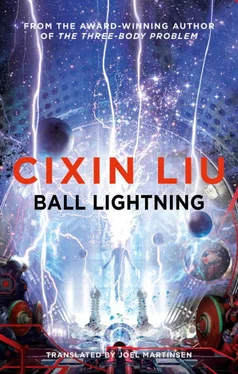
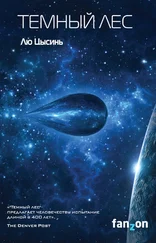
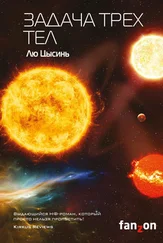
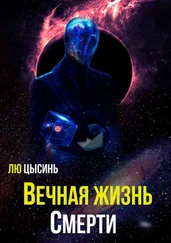
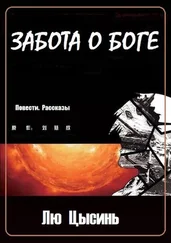
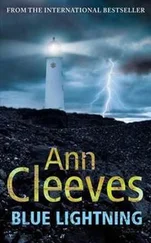
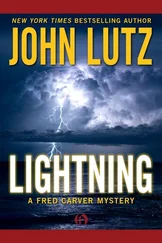
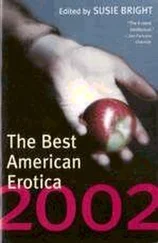
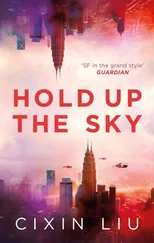
![Лю Цысинь - Эпоха сверхновой [litres]](/books/393110/lyu-cysin-epoha-sverhnovoj-litres-thumb.webp)
